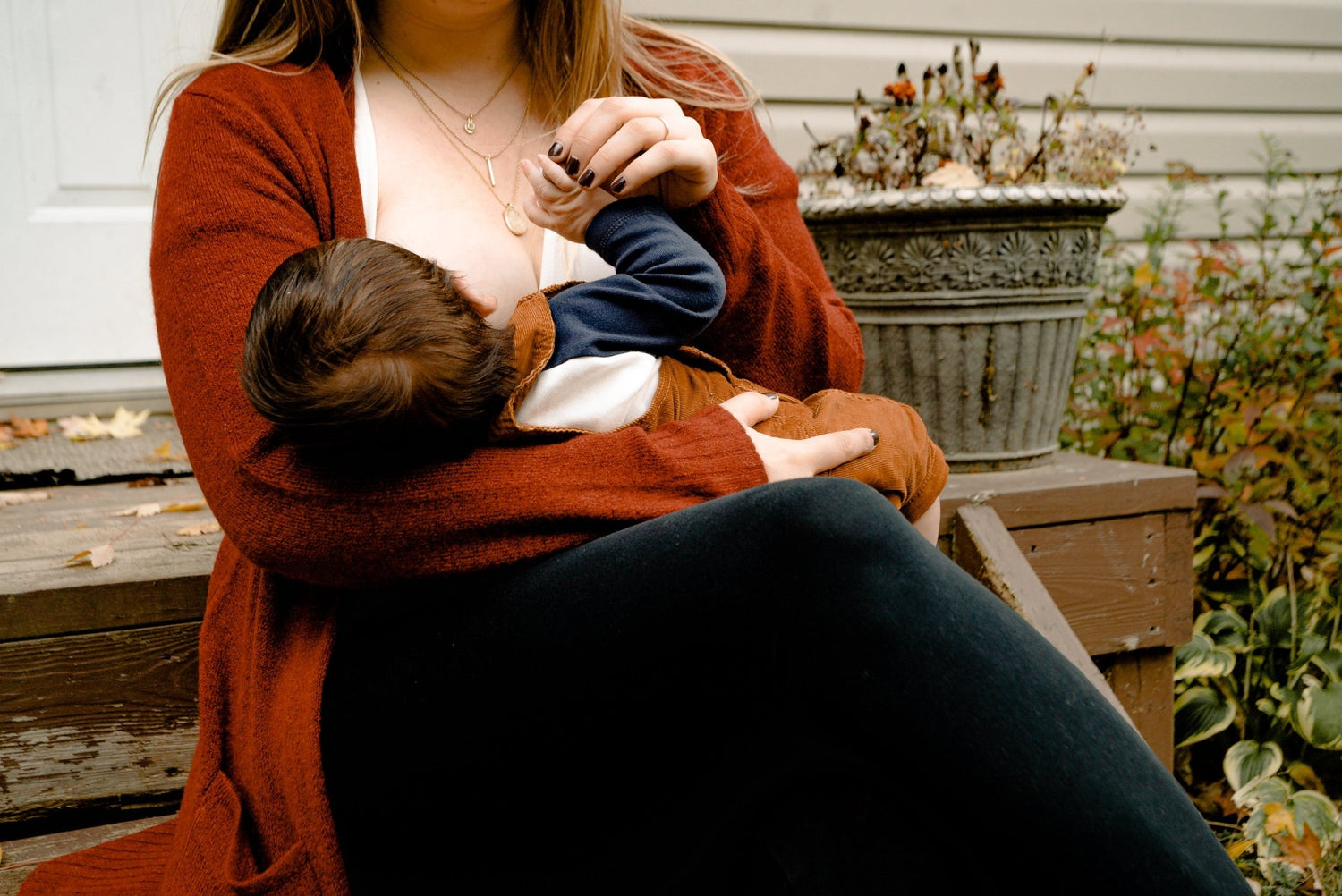The 4 Month Sleep Regression - Why your baby's sleep becomes challenging around the fourth month of life
Around the 4th month of life you will notice big developmental steps in your baby. It becomes more alert and aware of its surroundings and sleep also changes. Maybe your little one suddenly can't fall asleep anymore or wakes up more often at night. The reason behind this is called the 4 month sleep regression. This is an important and crucial step in sleep development because around the 4th month of life, our babies transition from newborn sleep patterns to more developed sleep patterns that are similar to those of us adults.
 1. What is the 4 Month Sleep Regression?
1. What is the 4 Month Sleep Regression?
Around the 4th month of life, your baby's sleep cycles change and he now spends more periods in light sleep.
Your baby's sleep now progresses in 5 phases:
-
Non-REM phases 1 and 2
These are the light sleep phases; your baby spends about half of his sleep in this light sleep. If your little one is in phase 2 and hears a noise, their brain waves will respond to it, but it won't necessarily wake them up completely. -
Non-REM phases 3 and 4
These are the regenerative deep sleep phases, also called “slow wave”, which mainly dominate the first third of the night’s sleep. This is also usually the sleep that babies sleep well in a coherent manner. -
REM phase (Rapid Eye Movement)
REM sleep is light sleep, but it is different from the other light sleep phases. In REM sleep we dream.
2. The new sleep cycle from the 4th month of life
These 5 phases together form a sleep cycle, which we adults and now also your baby go through several times a night from around the 4th month of life. A cycle lasts 60-120 minutes, at the end of the sleep cycle you wake up briefly. We wake up and check if everything is unchanged. You and I, we usually can't even remember, look for a comfortable sleeping position and go back to sleep. What does that mean for your baby? Your baby also wakes up after the end of the sleep cycle (every 60, 90 or 120 minutes) and may then no longer be able to get back to sleep.
3. Why the 4-month sleep regression can become a sleep problem
Not only does sleep change around the 4th month, there are also some major developmental steps at the same time as regression occurs. At four months old, your little one is now more attentive, active and awake. Suddenly he notices so much more: the garbage truck is driving loudly in the street, mom's cell phone is flashing, big sister is running around. All these exciting things that previously only happened in the background in your baby's little world are now much better understood and, for example, they find everything much more exciting than drinking. It is therefore very common for little ones to be distracted during the day and drink less.
So, your baby now has:
- a new sleep cycle with short wake-up phases
and - he is distracted during the day and doesn't drink as well or worse.
Then what happens at night? Due to the new sleep cycle, your baby wakes up every 60-120 minutes and is then really hungry (because he didn't drink well during the day). A small vicious circle is created, which leads to frequent feedings at night and to your little one being less hungry during the day because he drank more at night.
4. How can you help your baby sleep better during regression?
To do this, we need to talk about how your little one falls asleep. Many babies are carried to sleep, rocked, rocked, breastfed or fed. If your baby only knows how to fall asleep in this way, then the 4-month sleep regression and the new sleep cycle can unfortunately mean that - every time he wakes up - he needs exactly the same help to fall asleep that he used to fall asleep with.
5. Falling asleep independently
It is therefore crucial how your baby falls asleep so that he can fall asleep again independently thanks to the new sleep cycle of the 4-month sleep regression and frequent waking. That's exactly why it's a big advantage if you put your little one to bed sleepy but not yet completely asleep. So that it realizes “I’m falling asleep in the bed”. Yes, I know very well that falling asleep independently is often the biggest challenge. But that makes all the difference and it's so worth it to develop this skill sooner rather than later.
6. My tips for a sleep regression so that you can all get more sleep again
- Create the best sleeping environment and make sure your little one isn't kept awake by brightness. Small babies are not afraid of darkness, but they react very strongly to brightness. Therefore: the darker the sleeping environment, the better!
- Your little one may sleep less than they actually need during this adjustment phase. If your baby has had little or short sleep during the day or wakes up frequently at night, you can put your baby to bed earlier in the evening. Night sleep is more regenerative than day sleep and so your little one can catch up on some sleep.
- Around the 4th month of life, your baby continues to develop in big steps. It may be trying to turn around already - this milestone usually occurs at the same time as the 4 month regression. Make sure your little one can practice these new skills a lot during the day so that he doesn't have to train at night.
- It is so important that your little one drinks enough during the day and that the drinking intervals during the day are not too long. During regression, some babies want to feed more often - always feed your baby when he is hungry!
- As long as your baby cannot roll over on his own, I advise you to swaddle him. This can really help your little ones sleep. If swaddling is not an option for you or your baby can already roll over, the transitional sleeping bag from Wombambino ideal. Your little one has enough freedom of movement and still has limitations.
- Do you want to learn more about the 4-month regression and learn gentle strategies to help your little one sleep well (again)? Then I have something for you: mine Online regression course gives you concrete help and ways to support you in the coming months.
7. Regression = development step
There are several sleep regressions in the first two years of life, they usually occur around 4 months, 8 months, first birthday, 18 months and 24 months. Since the 4 month sleep regression is the first, it is a big challenge for most parents. The designation REGRESSION But it's actually misleading because regression stands for decline - but it's more of a further development that your baby is achieving. Regression is good because it shows that your baby and his sleep are evolving.
Guest post by Victoria Kinga Lamprecht from Kingababy:
Instagram: kingababy_ Schlafberatung
Website: https://www.kingababy.de





